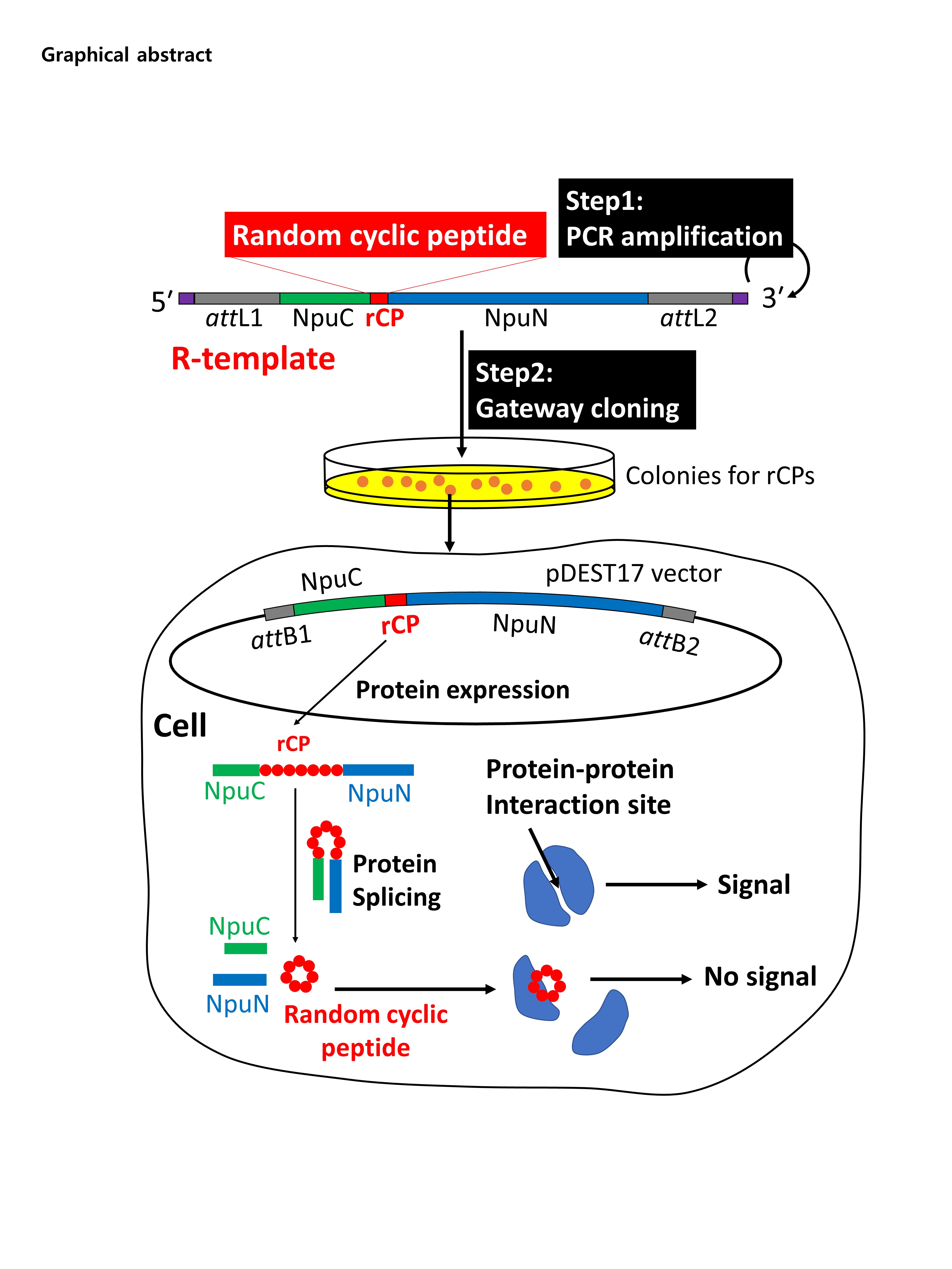The pharmaceutical market consists mainly of chemical and biological drugs. These drugs act on different types of targets and have distinct pharmacological properties. Generally, chemical drugs bind to the active site of target enzymes and easily penetrate the cell membrane owing to their small size; however, biological drugs can bind to the protein–protein interaction site but are less stable due to their protein properties. Cyclic peptides possess the pharmacological merits of both chemical and biological drugs, such as the ability to bind to the protein–protein interaction site and penetrate cell membranes. In this study, we developed a simple two-step system to generate a cyclic peptide library using the split intein of Npu DnaE and Gateway cloning. The first step is the PCR of Ready-to-use(R) template DNA having the coding sequences of random cyclic peptides between two split intein elements NpuC and NpuN and the recombination recognition site of Gateway cloning. The second step is the transformation of the PCR products via Gateway cloning to produce colonies with expression vectors to produce cyclic peptides comprising random amino acid sequences. The expression vectors in randomly chosen transformed colonies were confirmed to have random cyclic peptide sequences and all the clones, except ones having a stop codon in the cyclic peptide coding region, showed the expected protein splicing result. This simple two-step system for bacterial expression systems may be modified to suit various expression systems for cell-based assays.

